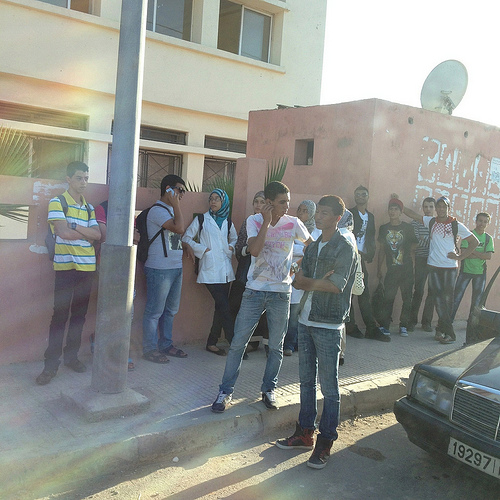King of Morocco Prioritizes Education Reform
 King Mohammed VI of Morocco scrutinized the government’s education development efforts during the speech which marked the 60th anniversary of the Revolution of the King and the Peoples. According to King Mohammed, the country’s economic growth is inhibited by the current state of education and is “worse now than it was twenty years ago.”
King Mohammed VI of Morocco scrutinized the government’s education development efforts during the speech which marked the 60th anniversary of the Revolution of the King and the Peoples. According to King Mohammed, the country’s economic growth is inhibited by the current state of education and is “worse now than it was twenty years ago.”
The king emphasized that an out-of-date curriculum and an absence of higher-level foreign language instruction directly contributes to Morocco’s noticeable recent increase in youth unemployment. He said, “educational institutions which provide such courses should not be factories that produce unemployable graduates, particularly in certain obsolete subjects.” Further development in vocational training and rehabilitation in technical and manual work will “provide a major source of income as well as a means for the achievement of a dignified life.”
A previous attempt for reformation was made through Morocco’s National Charter for Education and Training created in 1999, which was intended to deploy necessary resources for educational development. According to the king, the program was not consolidated by the current government and “dropped without consulting or coordinating with the parties concerned.”
The king’s speech was reminiscent of last year’s request for an educational reformation as he insisted “it hardly makes sense for each government to come with a new plan every five years, and disregard previous programs, particularly as no government will ever have the time, during a single mandate, to fully implement its project.” According to former Education Minister Ismail Alaoui, a law governing education and training has been needed in the country for at least ten years.
Forced to take action, many families send their children abroad or to private institutions to avoid their home country’s educational deficiencies, further contributing to financial burdens.
The king also promised to improve the country’s infrastructure of roads, drinking water, electricity, and student and teacher accommodation in all regions of the kingdom as a supplement to educational revisions.
To conclude his conception of the future education system, the king appointed Omar Azziman as head of the Supreme Council of Education, university professor and former Minster of Justice, who also contributed to the original conception of the National Charter for Education and Training. King Mohammed said “I call on the government to speed to the adoption of the necessary legal texts relating to the new council” and to have “a broad-based, constructive debate on all the major issues of concern to the nation, in order to achieve the tangible results Moroccans are looking forward to.”
Creative Commons Love: Alexandre Baron on Flickr.com
Written by Rachel Pozivenec









